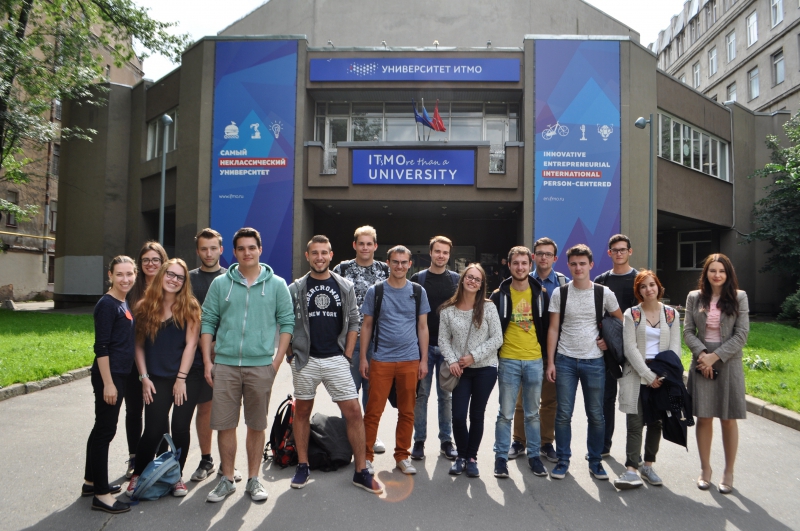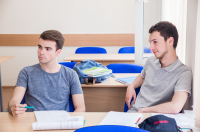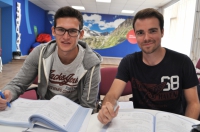We caught up with Daria Efimova, Valentina Dyulger and Natalya Kondrashova. Daria has been teaching Russian language and literature to international students for over ten years and has been working at ITMO University for a year. Valentina has been teaching two languages, English for over ten years and Russian since 2014.
Natalya is the head of the Russian Language Department in the Foreign Language Training Center, and has been teaching Russian language to international students for 17 years. For the past three years she has been working with students from the University of Mons who are studying to become Russian language translators.
This summer Daria participated in both the Russian Language Summer School and Summer Quest Programs. The main difference between the two programs is that the former focuses on teaching language while the latter requires prior knowledge and is mostly meant to help students practice existing skills and learn more about Russian culture, history, and similar topics. Daria notes that this year she taught students with very different levels of Russian language, but mostly students with advanced and intermediate skills. Valentina participated in teaching Russian language to beginners.
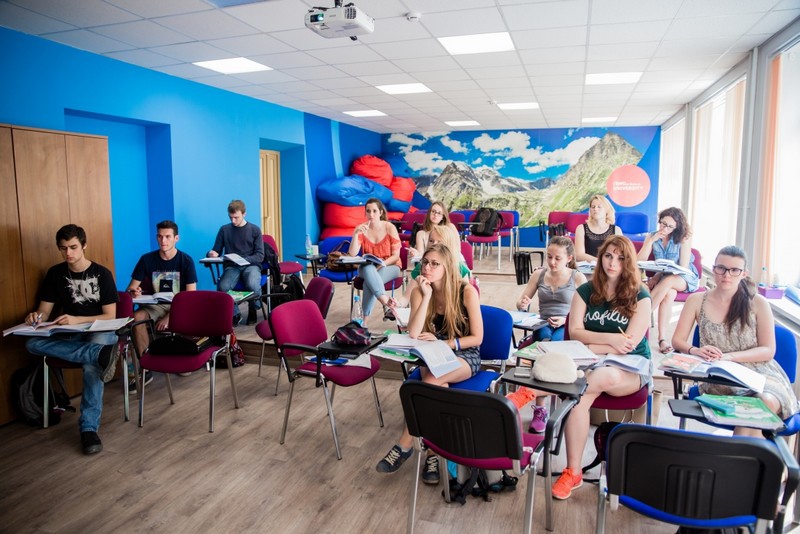
Before the classes started, students were assigned to different groups based on their language proficiency. Students with no prior knowledge of the language started learning it in their own group.
All of the teachers are firm believers in a communicative and functional approach. They have built their program’s content around relevant topics that would teach students skills they can use right away in their everyday life. The tasks comprise of working individually, in groups and making presentations. Most tasks are built around practicing spoken Russian language because it has proven to be the most effective way of learning the language.
“I believe in active learning,” notes Daria, “Students should participate in their own education.” She asks her students what they would like to learn about and the topics they are interested in, such as cultural aspects or literature. This way she is able to prepare her materials accordingly so that the students are truly motivated to speak and use Russian more in their daily lives here.
Daria and Natalya both agree that when creating the content for summer programs it’s crucial to keep in mind that the students are used to different teaching methods employed by their home countries educational systems. For example, students from China are very good at reading and writing but they have difficulties with listening and speaking. European students, on the contrary, have no problems with speaking and listening but have issues with reading and writing. Therefore, it’s crucial to find the right approach to each student and their needs.
Valentina is responsible for teaching students who have no prior knowledge of the Russian language. Her primary goal is to teach students practical everyday skills such as how to ask for a cup of coffee or get directions. For that she uses language structures that the students will encounter in their daily lives. Therefore, she tries to make her classes communicative through different exercises. This year, one of the main exercises was playing games, which proved to be a very efficient way to learn the language. Ms Valentina notes, “Students learn a lot faster and easier when they are actively using the language instead of just passively reading or watching something.”
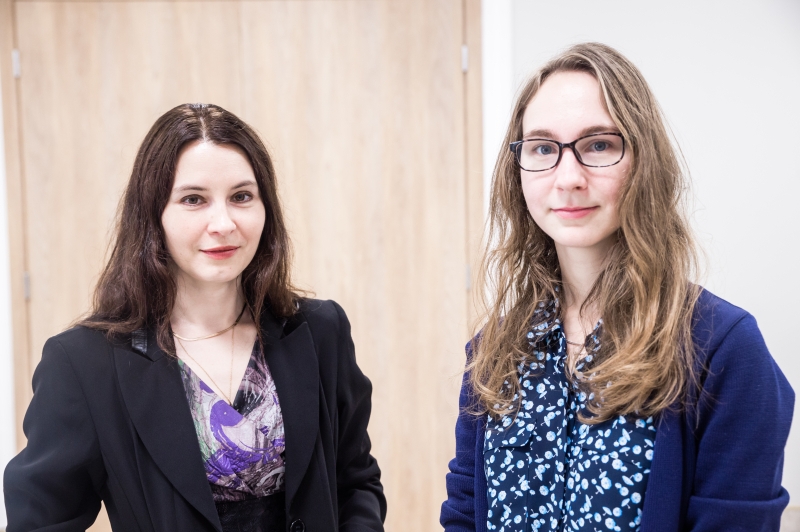
Natalya mostly works with advanced students, therefore she focuses on practicing their Russian language skills through multiple spoken tasks, helping to strengthen their knowledge while learning new structures. Each lesson has a specific topic that she concentrates on teaching efficiently to students.
The courses are built to help students to develop and practice their language skills no matter what their initial level of Russian is, because there is something for everyone. The teachers are there to encourage the students to get as much as they can from this experience.
Sometimes students avoid taking on a new language either because it’s too challenging or they are worried they won’t reach “perfection”. But, conversely, the teachers do not expect perfection nor do they want it. Their sole wish is for the students to develop and become the best they can be. “You need to speak and make mistakes in order to learn,” says Daria, “It is not a competition, and you don’t have to be better than someone else. We only wish for them to do their best and get everything they can out of this experience.”
Daria observes that the teaching situation requires both participants to give their all for it to be successful. Therefore, it’s important to interact with the students and build a relationship with them. “You become like an older friend to the students. When they first come to Russia, they need help getting around and understanding our culture, so it’s a bit different compared to regular teaching,” noted Daria.
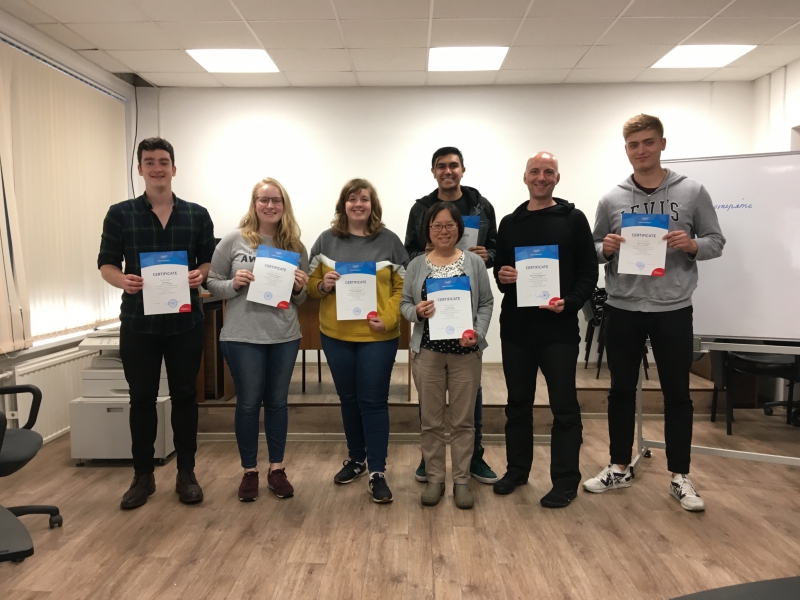
Valentina remarks that the students come here feeling motivated and work hard to achieve the best possible results. She continues, “They come here of their own free will, each with their own personal goals in mind.” She is always happy to see and hear that the students are motivated to continue learning the Russian language when they return back home.
Summer Quest Program: A Mix of Topics Involving Culture and History
Natalya, who was involved in organizing the Quest Program, notes that “The main goal is to immerse students into life in the city and culture, which are closely linked to learning the Russian language. Understanding the environment in which the language is used will help them to learn the language and its nuances which are difficult to grasp inside a classroom.”
Daria remarks that this format of the program was a request from the students who wanted to learn more about the culture, history, and literature, therefore they tried combining it all. This program format is mostly meant for advanced students, as improving your language skills significantly in such a short amount of time can be challenging, but it does allow them to practice and learn more about the culture, people and society.
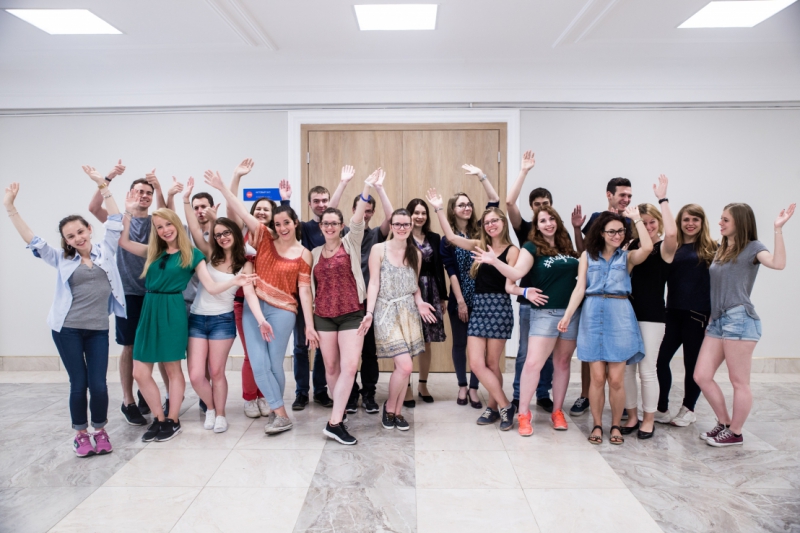
The teachers also shared their own motivation for using part of their summer vacation to teach international students.
“I am kind of crazy; I love my job,” comments Daria, “I love working with students because I am excited to share with them my love for this wonderful city and its culture, and I am very happy they get to experience it.”
Valentina notes that they, as teachers, also learn a lot from their students who come from very different backgrounds. “We get to meet different types of students, and I think it’s wonderful that we get to open these new doors,” she continues, “It is also the most rewarding thing to teach absolute beginners because yesterday they barely knew the alphabet and today they are already able to introduce themselves.”
Natalya, on the other hand, is inspired by working with the future professionals in the field of translation. “I love to see the fruits of my labour,” she remarks, “One of my students from this year will return here for their final internship after their graduation.”
Written by Veroonika Remets
